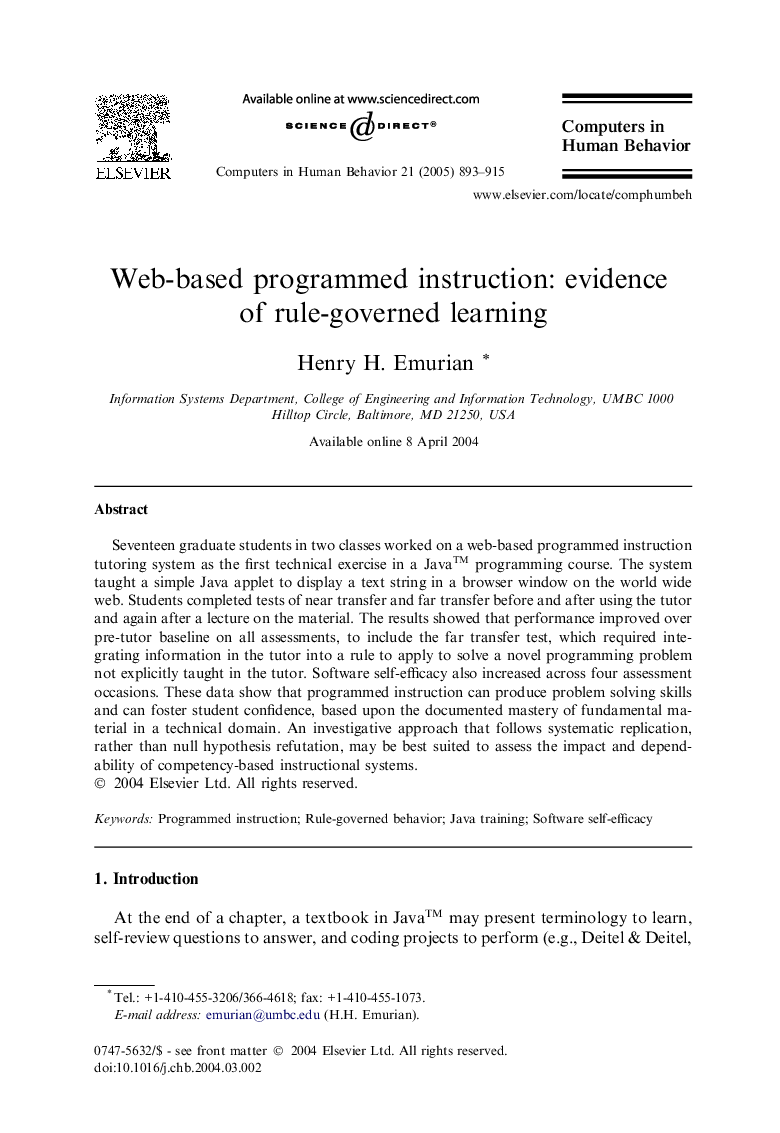| Article ID | Journal | Published Year | Pages | File Type |
|---|---|---|---|---|
| 10312814 | Computers in Human Behavior | 2005 | 23 Pages |
Abstract
Seventeen graduate students in two classes worked on a web-based programmed instruction tutoring system as the first technical exercise in a JavaTM programming course. The system taught a simple Java applet to display a text string in a browser window on the world wide web. Students completed tests of near transfer and far transfer before and after using the tutor and again after a lecture on the material. The results showed that performance improved over pre-tutor baseline on all assessments, to include the far transfer test, which required integrating information in the tutor into a rule to apply to solve a novel programming problem not explicitly taught in the tutor. Software self-efficacy also increased across four assessment occasions. These data show that programmed instruction can produce problem solving skills and can foster student confidence, based upon the documented mastery of fundamental material in a technical domain. An investigative approach that follows systematic replication, rather than null hypothesis refutation, may be best suited to assess the impact and dependability of competency-based instructional systems.
Keywords
Related Topics
Physical Sciences and Engineering
Computer Science
Computer Science Applications
Authors
Henry H. Emurian,
